#st. Paul
Explore tagged Tumblr posts
Text
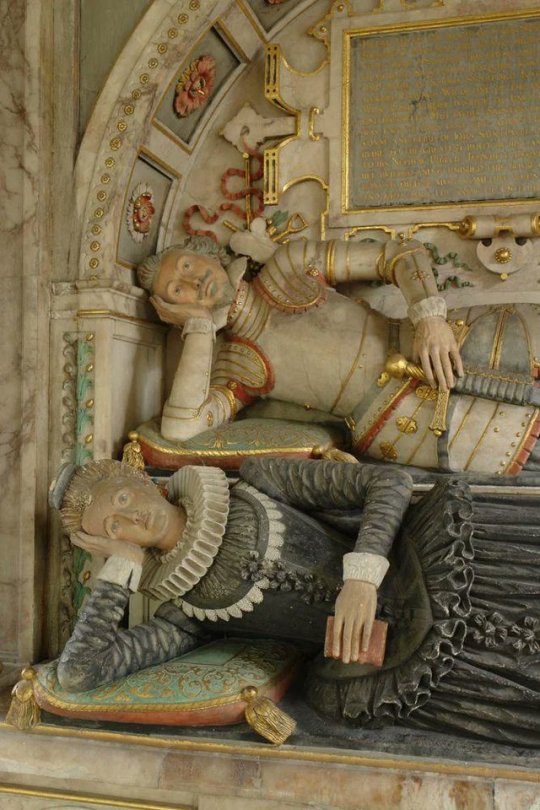
Detail of the monument to Sir George. St Paul and his wife in St Lawrence's Church, Snarford, England, 1613
#dark academia#light academia#classical#academia aesthetic#escapism#academia#books and libraries#classic literature#books#architecture#statue#sculpture#monument#Sir George#st. paul#St Lawrence's Church#Snarford#England#detail#1600s#17th century#royal core#cottage core#aesthetic#mood#vibe#history#tumblr
406 notes
·
View notes
Text


The 17th century church of St. Paul. According to legend, the actual St. Paul lived and preached in a grotto below the church for three months in 60 CE after he shipwrecked in Malta.
Rabat, Malta
Dec. 2019
#st. paul#malta#rabat#travel#original photography#photographers on tumblr#photography#lensblr#urbanexploration#urban exploration#architecture#architecture photography#historical architecture#church#church architecture#church photography#baroque#wanderingjana
48 notes
·
View notes
Text
I am completely and utterly convinced that nothing that St. Paul has ever said goes harder than “For it is not I who live, but Christ who lives in me.”
#catholic#catholicism#saints#catholic saints#catholic faith#christianity#jesus#mother mary#catholic church#St. Paul
65 notes
·
View notes
Text

Official Opening of UFO Landing Pad, St. Paul, Alberta, 1967
Provincial Archives of Alberta, PA.4272/4
148 notes
·
View notes
Text
NPC’s
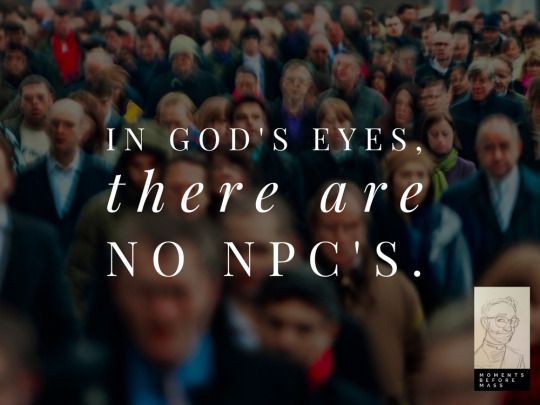
(by request)
In the first century, Roman jailers were tortured and put to death if their prisoners escaped.
That’s the backstory to the jailer’s reaction to the earthquake at the jail in today’s first reading.
The foundations of the jail shake, the doors fly open, the chains are pulled loose.
The jailer sees this, assumes that his prisoners (Paul and Silas) have escaped, and prepares to kill himself. Because he knows what they do to jailers.
In that moment of despair, Paul calls out to the jailer, “Do no harm to yourself, we are all here.”
When they could have escaped, Paul and Silas didn’t. Why?
Because Paul and Silas know what they do to jailers.
It would have been so easy for them to run away after the earthquake. Paul and Silas had every reason to do it.
Their friends would have been so happy for them to be free. No one would have given the jailer a second thought.
But Paul and Silas? They knew what running away would mean for the jailer.
So, they stayed. And made sure that the jailer didn’t take his own life.
Why? What makes the jailer so special? All we know about him is his job. In the narrative, he’s part of the scenery, a nameless background character. In gaming terms, he’s an NPC (non-player character).
But that’s not how God sees things. In God’s eyes, there are no nameless background characters.
Paul and Silas are instruments of God’s grace, to be sure. But if we’re only looking at Paul and Silas, then we’ve missed the point of the earthquake at the jail and everything that followed.
Everything that happened wasn’t done for show, so that people would be impressed with Paul and Silas.
As St. John Chrysostom tells us, it was all done for the jailer – “not for show but for salvation.”
It was all done so that someone who was part of the scenery, a nameless background character to everyone else, might know how much he mattered to God. That to God, “he was worthy of salvation.”
That is how God looks at each one of us.
Because in God’s eyes, there are no NPC’s.
Today’s Readings
#NPC#Background#Nameless#Who you are in God's eyes#St. John Chrysostom#St. Paul#Roman#God#Jesus#Catholic#Christian#Christianity#Church#Catholicism#Moments Before Mass
123 notes
·
View notes
Text
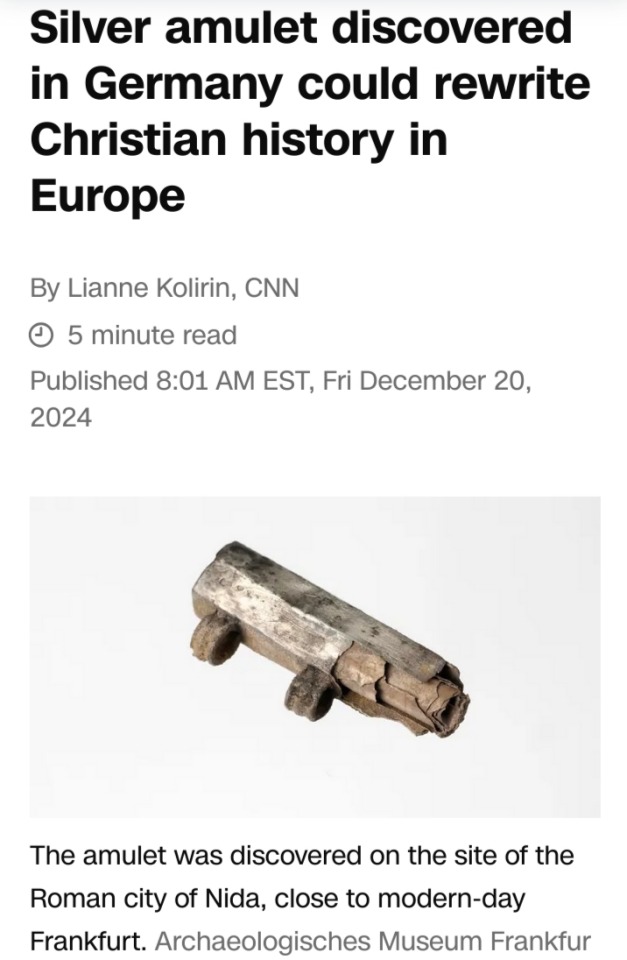
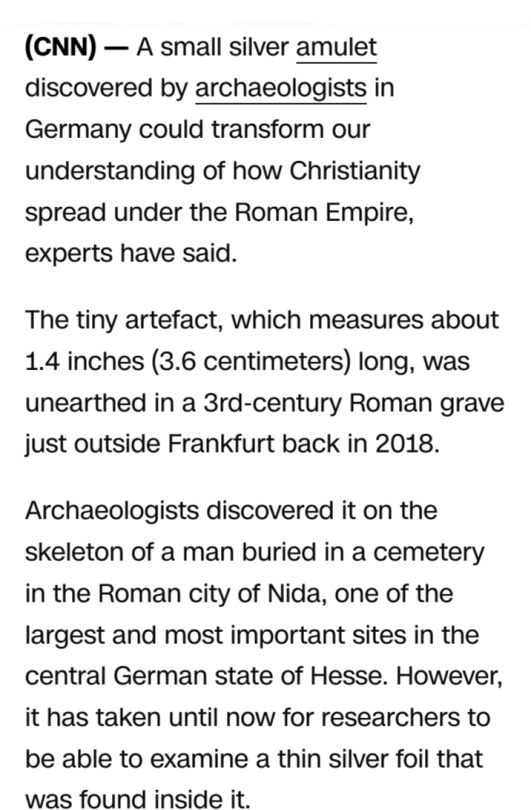
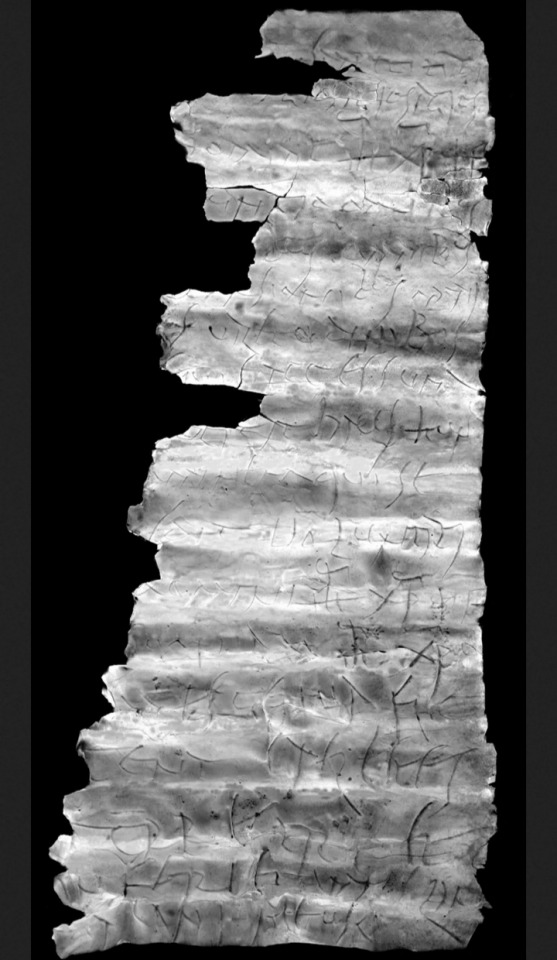
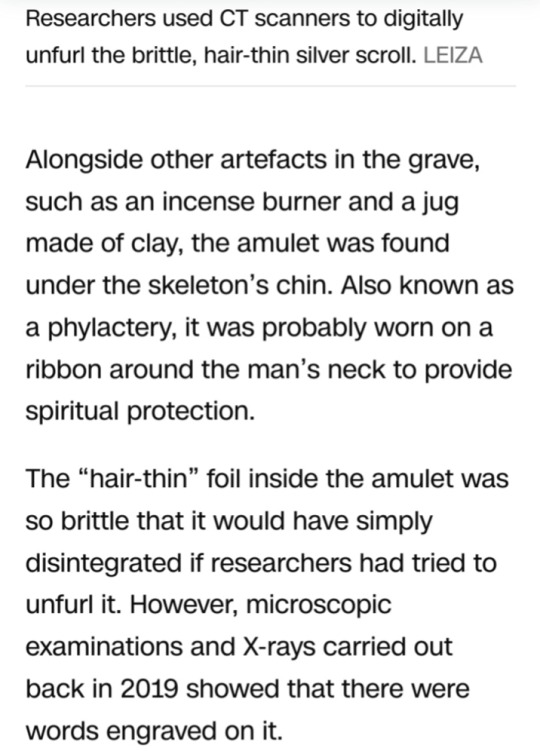
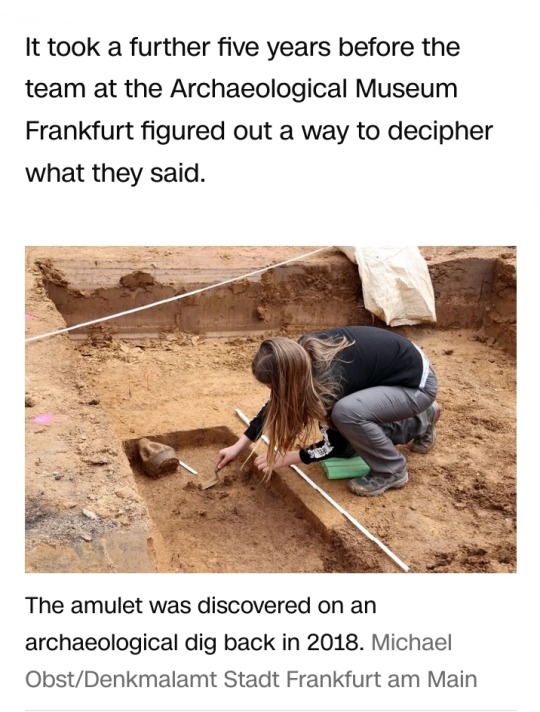
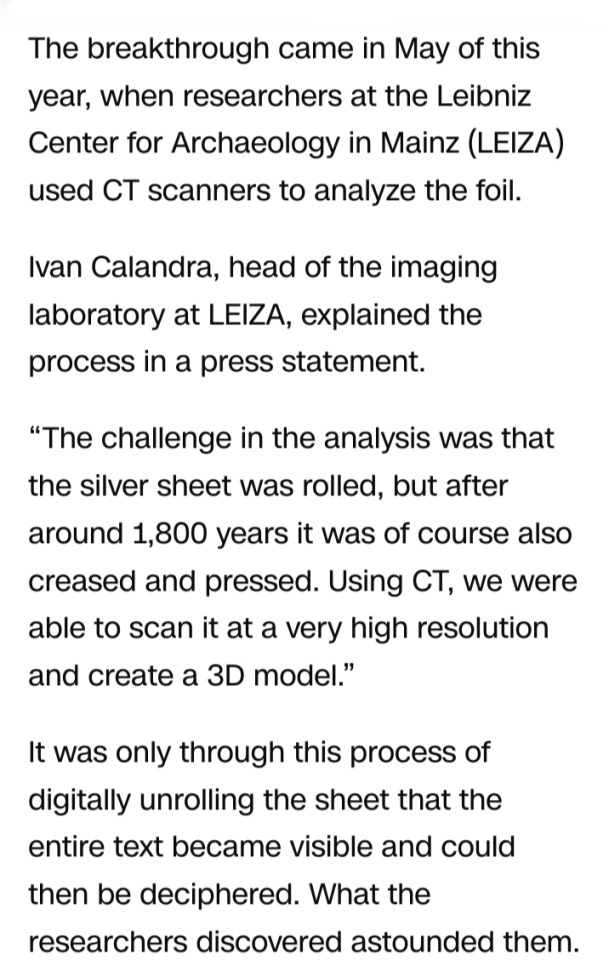
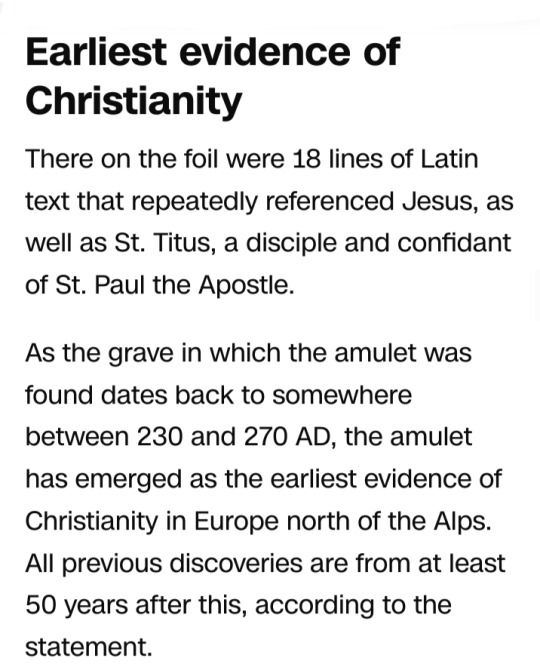
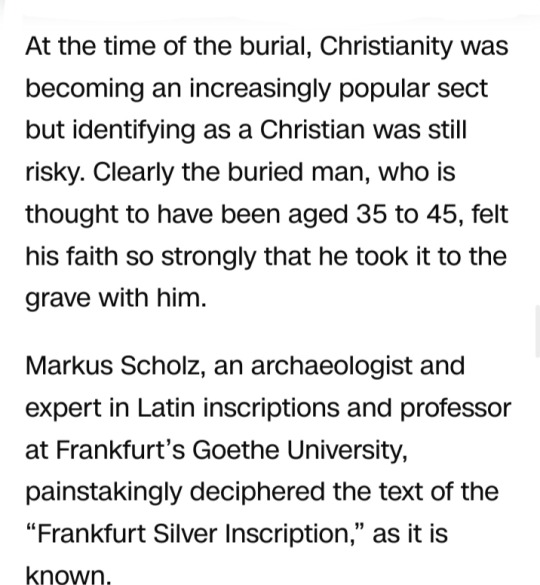
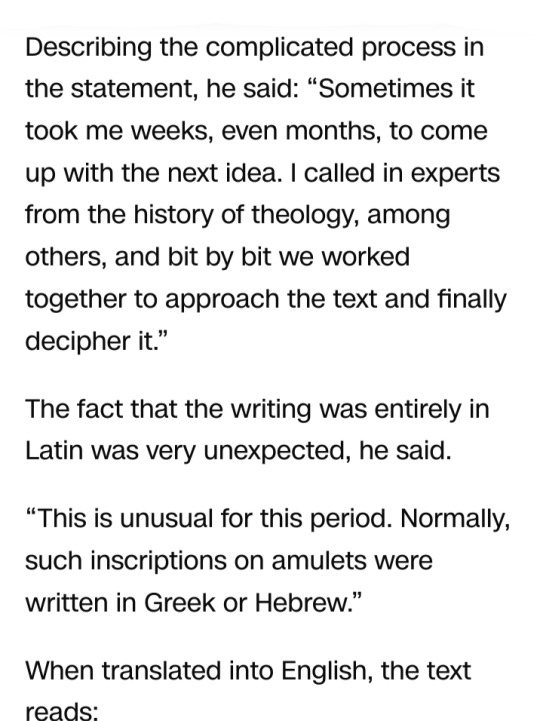
“(In the name?) of St Titus.
Holy, holy, holy!
In the name of Jesus Christ, Son of God!
The Lord of the World
Resists (to the best of his ability?)
All attacks(?)/setbacks(?).
The God(?) grants the well-being
Entry.
This means of salvation(?) protects
The human being who
Surrenders to the will
Of the Lord Jesus Christ, the Son of God,
Since before Jesus Christ
All knees bow to Jesus Christ: the heavenly
The earthly and
The subterranean and every tongue
Confess (to Jesus Christ).”
There is no reference in the text to any other faith besides Christianity, which would also have been unusual at this time.
According to the Frankfurt Archaeology Museum, reliable evidence of Christian life in the northern Alpine regions of the Roman Empire only goes as far back as the 4th century AD.
‘Fantastic find’ made possible by modern technology
Wolfram Kinzig, a church historian and professor from the University of Bonn, helped Scholz to decipher the inscription.
“The silver inscription is one of the oldest pieces of evidence we have for the spread of the New Testament in Roman Germania, because it quotes Philippians 2:10–11 in Latin translation,” Kinzig explained in an interview published on the University of Bonn’s website.
“It’s a striking example of how Biblical quotations were used in magic designed to protect the dead,” said Kinzig.
Peter Heather, a professor of medieval history at King’s College London with a specialist interest in the evolution of Christianity, described the discovery as a “fantastic find.”
Heather, who wasn’t involved in the research, told CNN:
“The capacity to be able to decipher the writing on that rolled-up piece of silver is extraordinary. This is something that’s only possible now with modern technology.
If they’d found it 100 years ago they wouldn’t have known what it was. Silver amulets are probably going to contain some kind of magical scroll but you don’t know what – it could be any religion.”
He added:
“You’ve got evidence of Christian communities in more central parts of the empire but not in a frontier town like that in Roman Germany so that is very unusual, well it’s unique. You’re pushing the history of Christianity in that region back.”
#silver amulet#amulet#germany#nida#frankfurt#archaeology#christianity#christian history#roman empire#artifact#ct scan#phylactery#archaeological museum frankfurt#Leibniz Center for Archaeology in Mainz (LEIZA)#jesus#st. titus#st. paul#frankfurt silver inscription
26 notes
·
View notes
Text

St. Paul Shipwrecked on Malta, Laurent de La Hyre, 1630
#art#art history#Laurent de La Hyre#religious art#Biblical art#Christian art#Christianity#Book of Acts#St. Paul#Apostle Paul#Baroque#Baroque art#French Baroque#Neoclassicism#French art#17th century art#oil on canvas#Birmingham Museum of Art
65 notes
·
View notes
Text





Speak Now World Tour
June 15, 2011 - St. Paul, Minnesota
#taylor swift#tswiftedit#onthisday#taylurking#2011#june 2011#speak now tour#performances#concert#st. paul#minnesota
51 notes
·
View notes
Text
Make love your aim and then set your heart on spiritual gifts.
— St. Paul, 1 Corinthians 14:1 (KJV)
89 notes
·
View notes
Text
How did the first concept of God originate?
Who was Yahweh and who was Moses? Where did the Ten Commandments originate from?
Who was Jesus Christ, and what do the Gospels which were left out of the New Testament say?
Who was St Paul, and which was the first Church before the Roman Catholic one?
How did the papal pontificate originate, and what were the repercussions of the false document which was supposedly left to the Church by Emperor Constantine the Great in order to cling to power?
Was there a different scenario to how things could have unfolded? This book, backed by the discoveries which have occurred in the last centuries, will tackle these questions unearthing new ones in the process.
"In this book, author Anton Sammut undertakes a challenging task in a race to uncover various aspects affecting the development of religion in relation to culture. This task is considered delicate and for some even dangerous. Delicate because it requires meticulous research and gathering of information; dangerous because it ventures far beyond the borders of religion which we normally restrict ourselves to because they offer security and certainty. In this respect, this book will appeal hugely to those who are not satisfied with what they have been instructed but are interested in exploring how the information arrived to them."
- Rev. Dr René Camilleri
"The laborious and careful exercise carried out by Mr Sammut, both on the Bible as well as on the History of the Church, is intended to assist the reader to view both of them from an angle which we are not accustomed to. This type of mental exercise is always useful, especially when the thoroughly researched and examined subject is not easy, not necessarily understood in one way, and is more complex than the human brain can handle."
- Rev. Prof. Peter Serracino Inglott

Anton Sammut's Fb Page
Goodreads
#history of religion#catholicism#gnostic christianity#follower of jesus christ#christian faith#christianity#christopagan#jesus christ#jesus in india#jesus#bible#bible study#faith#spiritual initiation#spiritual journey#spirituality#spiritual insights#theology#western philosophy#eastern philosophy#middle east#meditation#st. paul#philosophy#philosopher#controvercial#controversy#controversial#metaphysics#metaphysical
11 notes
·
View notes
Text

In 1 Timothy 1:19, the Apostle Paul urges Timothy this: "Cling to your faith in Christ, and keep your conscience clear. For some people have deliberately violated their consciences; as a result, their faith has been shipwrecked."
You may also recognize Luke 17:33, where Jesus give us a warning about holding on too tightly to our own lives. Here it is in the NLT: "If you cling to your life, you will lose it, and if you let your life go, you will save it."
If we cling to ourselves, to the ways of this world, we inevitably will lose it. We cannot truly cling to Jesus unless we let go of any unholy, unrighteous things we were holding tightly to. By clinging to Him, we will be lead into a glorious future full of love, joy, peace, & health, & many, many other blessings. It doesn't matter how messed up, cracked, or even broken your past has been. Jesus wants to lead you to a glorious, victorious life. Clinging to Him is a choice we must make daily. His hand is always stretched out offering for us to cling.
#God#Jesus#Christ#Christian#Christianity#faith#encouragement#inspiration#motivation#quote#quotes#QOTD#Christian quote#Christian quotes#Lecrae#hip hop#hip-hop#rap#Christian rap#music#Bible#1 Timothy#Luke#Apostle Paul#St. Paul#cling#clinging
10 notes
·
View notes
Text

KSTP
14 notes
·
View notes
Text
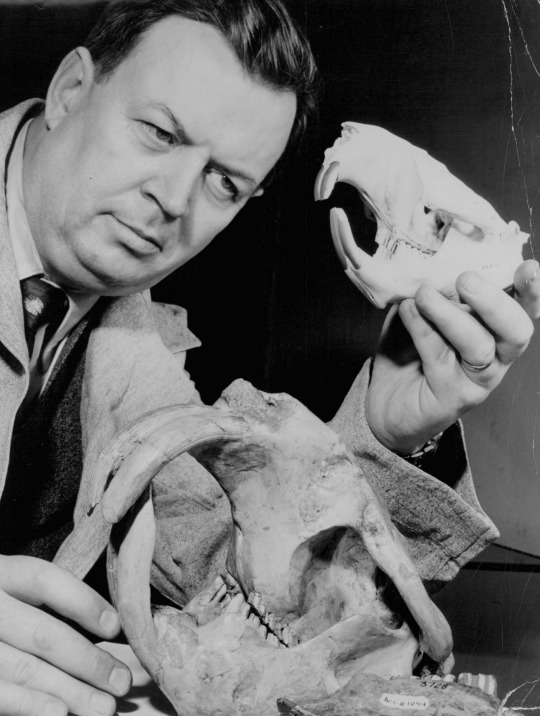
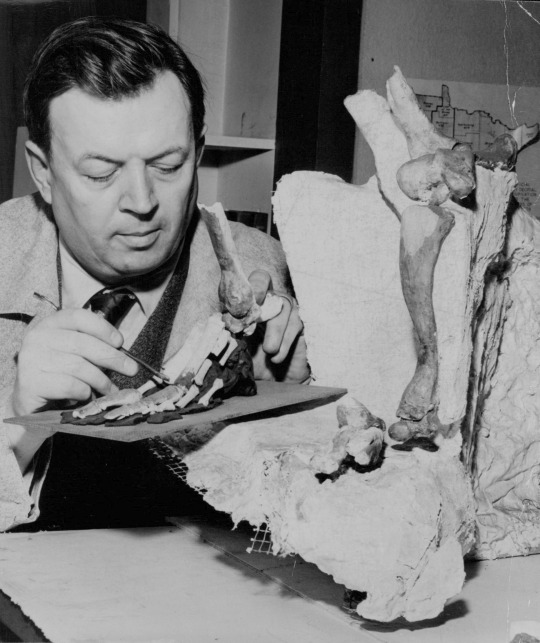
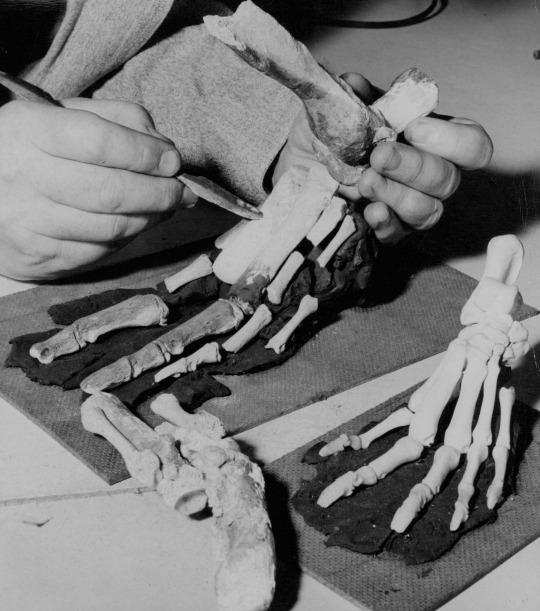
That's One Giant Beaver!
Giant beavers as big as bears (6 to 9 feet long, weighing 200-500 pounds) ranged the Mississippi River flats over 15,000 years ago. Picture here, in 1947, is Louis H. Powell, director of the Science Museum of St. Paul, comparing a giant beaver skull dug up on the Mississippi flats, near Hidden Falls park, with the skull of a large modern beaver.
In 2021, the Science Museum of Minnesota nominated a Giant Beaver specimen to be the official state fossil. You can read the campaign online. A bill was introduced in 2022.
Photos from the Minneapolis Newspaper Photograph Collection in the Hennepin County Library Digital Collections. The 1947 newspaper article which featured these photographs incorrectly stated that the fossil was dug up below the Lake Street Bridge, but Hidden Falls Park is in St. Paul.
#Minnesota#St. Paul#Mississippi River#Beavers#Fossils#Giant Beavers#State fossils#Science Museum of Minnesota#science#prehistoric animals#extinct animals
68 notes
·
View notes
Text
We all have knowledge; yes, that is so, but knowledge gives self-importance - it is love that makes the building grow.
-St Paul, 1st letter to the Corinthians
Ouch. Ouch. Ouch. I needed to read this today.
11 notes
·
View notes
Text
The best way

Yesterday, someone was feeling guilty.
About how he voted for President.
So he decided to tell me who he voted for (I never would have asked).
And then launched into an impassioned rationalization. At turns both oversimplified and complicated. Of why the way he voted was the best way to defend the Catholic Faith against…
To be honest, I kind of checked out at some point during it all.
Not because I don’t care about him. Or about why he was so troubled over his vote.
But it was all so convoluted. And so external.
As if our Faith depended on things done by the great and the powerful. With slogans and speeches, legislators and lobbyists. Something out there.
That’s not what our Faith depends on. Our Faith depends on things done by God.
Not in electing candidates or enacting laws. But God moving in individual hearts – my friend’s heart, my heart, your heart.
It’s the spirit of today’s first reading. Where St. Paul gives us our priority, to
“Work out your own salvation with fear and trembling.”
It’s kind of the opposite of the big show and the big sell. It’s about going small, to draw closer to God.
“Do everything without grumbling or questioning, that you may be blameless and innocent, children of God without blemish in the midst of a crooked and perverse generation, among whom you shine like lights in the world,”
It’s almost counter-intuitive. It’s definitely miles away from my friend’s sophisticated hair-splitting and enthusiastic rationalizing, with a side of armchair campaign manager.
But it’s the only strategy that works. The only one that ever changes hearts.
It’s one of those things that becomes more true (if that’s possible) the more you think about it.
The best way to defend the Faith? Actually practice the Faith.
Today's Readings
#Defend the Faith#Voting#Election Day#Practice#Faith#God#Jesus#Catholic#Christian#Catholicism#Christianity#St. Paul#Moments Before Mass
19 notes
·
View notes
